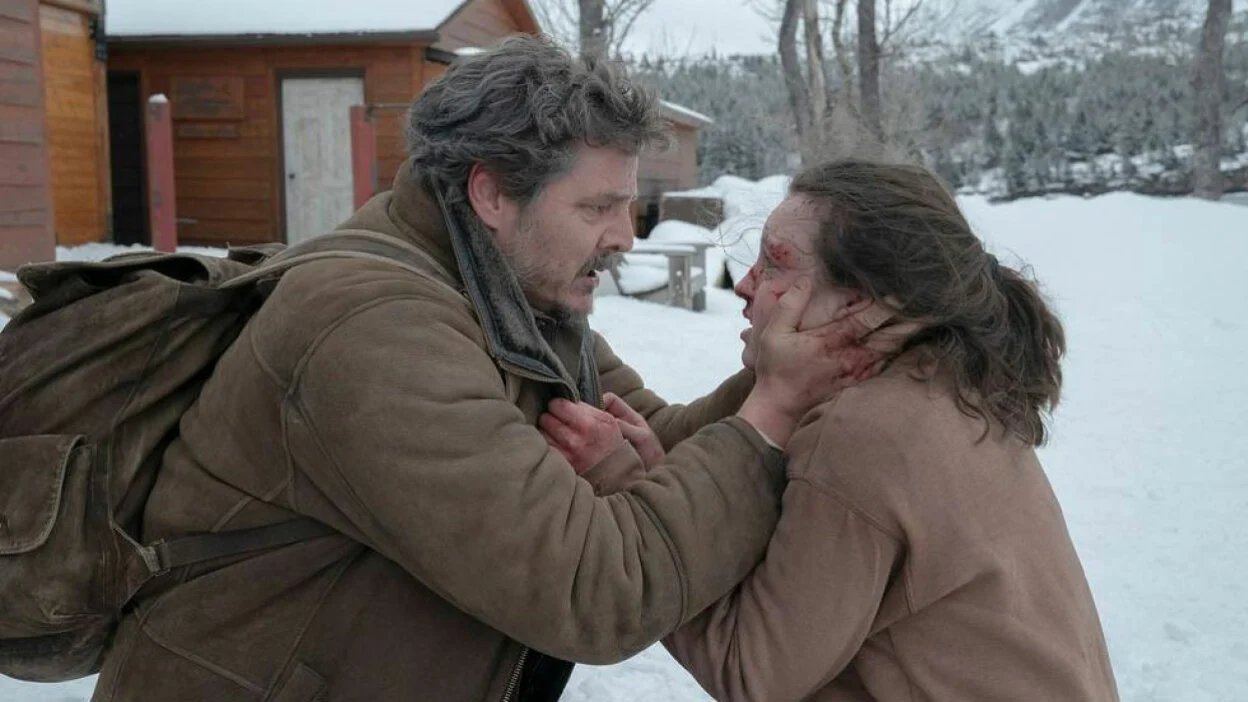The Last of Us Takes the Easy Way Out
I’ve been watching and (mostly) enjoying HBO’s The Last of Us. Now, full disclosure, I never played the game and as such cannot refer to that for context. I do, however, have a close friend who loves the game. He told me recently that one of the major differences between the show and the game is the relationship between Joel and Ellie. From what he says in the game Joel doesn’t show much warmth towards his “cargo,” where in the show that relationship is paramount.
I think this is good, effective storytelling/adaptation. I don’t think people would want to watch this show if there wasn’t something between our protagonists that’s more than a simple transaction. However, I think this introduction of sentimentality, for lack of a better word, led them to making some poor decisions in this week’s episode.
Now, despite a previous post about my distaste for spoiler culture I will give you a spoiler warning here. I’m going to discuss the most recent episode of The Last of Us below, so please stop reading if you haven’t watched.
I’ll wait.
Everyone gone?
Good.
Ok, so the most recent episode – episode 8 titled “When We Are in Need” – deals with a religious cult and their preacher. He encounters Ellie when she’s hunting and we come to learn that the man who stabbed, and was subsequently killed by, Joel in the previous episode was a member of this preacher’s community. I won’t bore you with a recap as presumably you’ve either seen the episode or don’t care.
My issue here is specifically with the treatment of the preacher. I certainly don’t mind a villain and have no issue with positioning an alleged man of God in that role, but I feel the show had an opportunity here that it failed to seize. It could’ve used this encounter to discuss the moral ambiguities and difficult decisions that would arise in the world of The Last of Us.
The writers clearly wanted to end the episode with Ellie covered in blood having just brutally murdered the preacher and Joel comforting her. They opened with her caring for him after the injury and its fitting to bookend it with Joel caring for her as she’s covered in blood. That’s fine, it’s a nice image. If there’s anyone who understands what it’s like to kill, its Joel and we again, hopefully for the last time, are reminded that they are now essentially family.
But, for some reason, the writer’s decided that they needed to take the preacher from a regular, somewhat evil or misguided person and turn him into an absolute monster who’s trying to rape the 14-year-old Ellie while the building burns to the ground around them. Why? Why was this necessary? How does this help the show?
In my mind, it’s far more interesting to present the preacher as a mildly bad person who’s simply in opposition to Ellie and Joel’s objectives. They could’ve had him tell Ellie that he can’t save Joel, but he can save her. This would’ve worked as both him physically saving her from his blood thirsty followers, and a spiritual salvation. It would present her with a choice – abandon the quest and Joel, take the relative safety presented of the preacher, or chose the violent, morally ambiguous alternative. It would force Ellie, and the audience, to contemplate the dilemmas this world presents.
Naturally, we know what she would choose. She loves Joel and wouldn’t leave him, but presenting the preacher as a real option would’ve meant that killing him was a morally compromised choice.
Instead, they took the easy way out. They transformed the preacher’s character from your run of the mill cult leader into the embodiment of evil. If she didn’t kill him, he would rape and then likely kill her. So what choice was there? What moral dilemma did she face?
Yes, I’m sure killing someone, especially in that manner, takes something out of you. I’m sure it leaves its imprint, changes you. But it would’ve had a different, stronger impact if she’d killed a less evil man who was simply standing in her way. That would’ve created a bond between her Joel – a man who we’re repeatedly told had done terrible things (like killing sort of innocent people) in the past. It would’ve shown us what it takes to survive in that world.
But they didn’t want to do that. They created a monster and had her slay him. I think they’d have done better to trust their audience. To lead them down a dark path and show the moral complexities of survival in a post-apocalyptic hellscape.
I don’t plan for all these posts to be about television, so I apologize if the early ones have been a bit one note. As always, if you know someone who might like this, please tell them about my substack or my website or both. It would be a great help to me. Thanks for reading!
